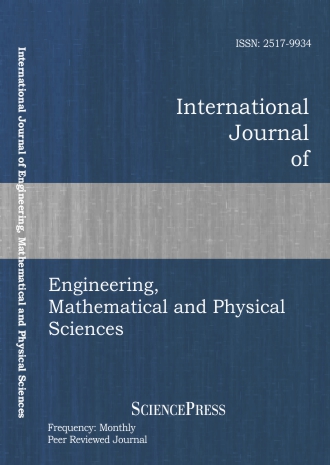
Scholarly
Volume:7, Issue: 3, 2013 Page No: 362 - 367
International Journal of Engineering, Mathematical and Physical Sciences
ISSN: 2517-9934
1086 Downloads
Memory Effects in Randomly Perturbed Nematic Liquid Crystals
We study the typical domain size and configuration character of a randomly perturbed system exhibiting continuous symmetry breaking. As a model system we use rod-like objects within a cubic lattice interacting via a Lebwohl–Lasher-type interaction. We describe their local direction with a headless unit director field. An example of such systems represents nematic LC or nanotubes. We further introduce impurities of concentration p, which impose the random anisotropy field-type disorder to directors. We study the domain-type pattern of molecules as a function of p, anchoring strength w between a neighboring director and impurity, temperature, history of samples. In simulations we quenched the directors either from the random or homogeneous initial configuration. Our results show that a history of system strongly influences: i) the average domain coherence length; and ii) the range of ordering in the system. In the random case the obtained order is always short ranged (SR). On the contrary, in the homogeneous case, SR is obtained only for strong enough anchoring and large enough concentration p. In other cases, the ordering is either of quasi long range (QLR) or of long range (LR). We further studied memory effects for the random initial configuration. With increasing external ordering field B either QLR or LR is realized.
Authors:
References:
[1] ZurekW.H."Cosmological experiments in superfluid helium?" Nature,